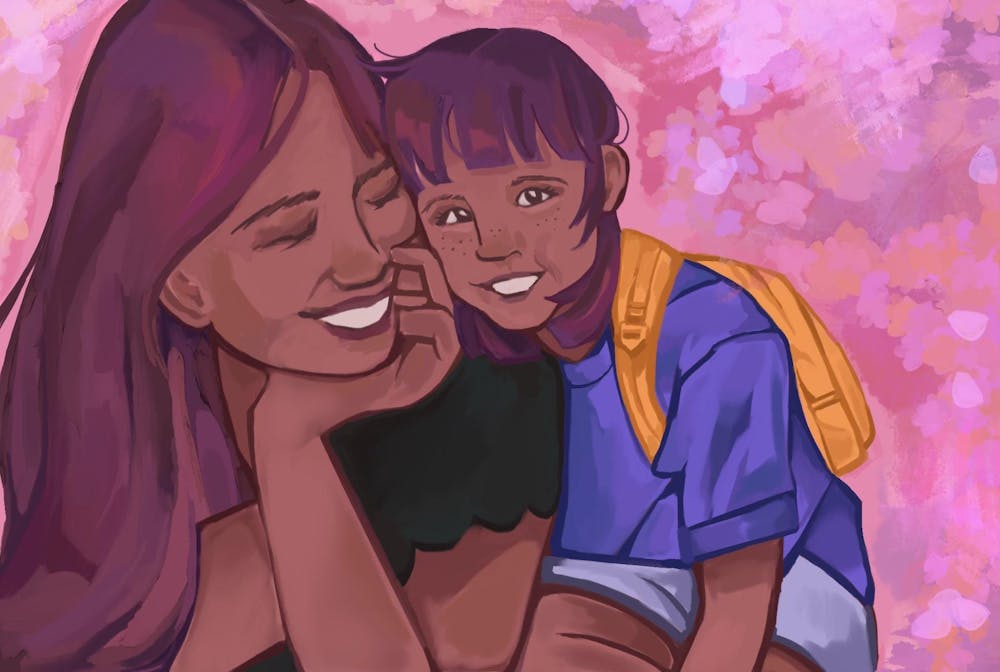A baby’s piercing wail on a long flight, a toddler launching an assault of questions and a fifth grader unapologetically picking their nose — it’s no question that children have tested our patience countless times. But while kids can surely generate occasional frustration, the positivity and community they bring to society far exceeds the minor inconveniences we may feel when they’re around. It’s time we start reinvesting in our relationships with the youth: After all, they have a lot to teach us.
Hatred against children has a growing presence online. There are X posts that explicitly express this dislike and even call for violence towards them, memes on our Instagram explore pages demonizing them and, of course, TikToks that perpetuate the same hateful message. Hop on Reddit and you can be sure to find manifestos detailing every ounce of their loathing.
This normalization should concern people. In our already polarized culture so divided along ideology, race and gender, let’s not create more instability by throwing age and children into the mix. Let us instead focus on what makes kids so great.
Children are invisible agents in building strong foundations in a community. Many of the spaces that we enjoy as centers for public gatherings were pioneered for children. Playgrounds, schools and seasonal festivals are all created with kids in mind but end up being used for much more. They bring families together, create organizational groups like the parent-teacher association and provide opportunities for people without children of their own to volunteer. People end up investing time and forging relationships over activities that involve children: Kids become a great excuse to get out there.
Communication, empathy and patience are all skills that we gain from working with children. Intuitively, it makes sense. People underestimate how clear-cut, patient and empathetic you need to be when dealing with little humans who have yet to figure out their emotions or master their speech. What’s incredible about these skills that you develop while surrounding yourself with kids is that you can use them when dealing with very adult things. Need to dumb down an argument? Try explaining it like you would to a kid. Have to deal with tantrums from customers or peers? Take a deep breath and imagine you’re calming down a cranky kindergartener.
I can personally attest to this. I worked at a preschool for years, and my ability to empathize with not just the children, but even other adults, improved drastically. I’ve made it through unbearable roommate situations, frustrating customer service calls and the toughest arguments by using what I’ve learned from interacting with toddlers. Needless to say, I’ve encountered my fair share of mature toddlers and crying adults. So, the hate on kids loses its value when you realize how childlike a lot of adults can be.
The applications of lessons learned by surrounding yourself with children are endless, and it can be shocking to see the similarities between adults and children. At the end of the day, kids are humans just like us. Our connection to them is that we were at one point them, and they will at one point be us — it’s arbitrary to draw a line between adults and children when our identities are so intertwined. Without monotonous work schedules and adult responsibilities, children can remind us older generations what creativity, innocence and spontaneity looks like. In our chaotic political climate, we could all use a reminder of the joys of leisure and play. In turn, we exist to show them the importance of responsibility. It’s a beautiful back and forth that helps to balance both our needs for responsibility and our desires for fun.
Brown students on campus can go months without seeing kids, but they don’t have to. The University offers a host of opportunities to connect with kids and we should all be leveraging them more often. Whether you’re a math nerd or a creative, there are clubs on campus that build bridges with the children in our community. It’s time to throw out those unfunny jokes and change the conversation about kids. If we can be more interconnected across ages, we can cultivate a more intergenerationally united society.
Shayyan Ahmed ’27 can be reached at shayyan_ahmed@brown.edu. Please send responses to this column to letters@browndailyherald.com and other opinions to opinions@browndailyherald.com.





